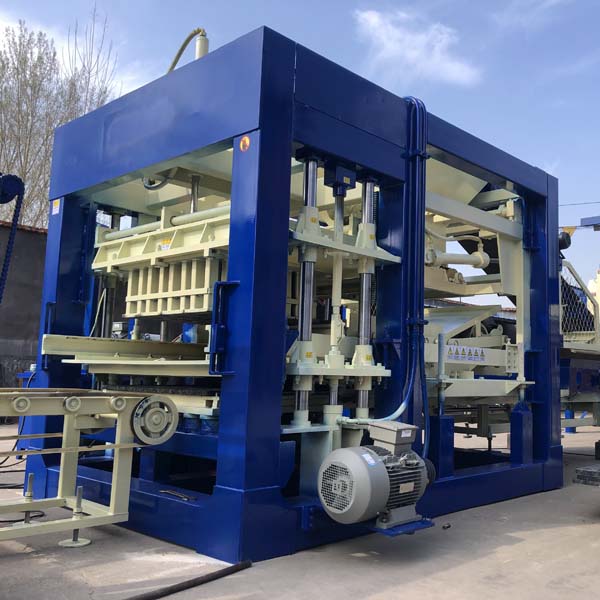
Global Regulatory Compliance Challenges for Full-Automatic Block Manufacturers
**Title: Navigating the Regulatory Landscape: Global Compliance Challenges for Full-Automatic Block Manufacturers**
**Introduction**
In the fast-evolving landscape of full-automatic block manufacturing, adhering to the global regulatory standards is imperative for ensuring product safety, environmental responsibility, and market access. This article explores the key regulatory compliance challenges faced by full-automatic block manufacturers on a global scale and outlines strategies to navigate these challenges effectively.
**1.** **Diverse Regulatory Frameworks:**
* **Challenge:** Different regions and countries have varying regulatory frameworks governing construction materials, making it challenging for manufacturers to navigate and comply with multiple sets of standards.
* **Strategy:** Invest in a comprehensive understanding of regional regulations and engage legal experts to ensure full compliance. Establish a streamlined process to adapt to and meet the specific requirements of each market.
**2.** **Environmental Regulations:**
* **Challenge:** Increasing emphasis on sustainable and environmentally friendly construction materials poses challenges for manufacturers in terms of meeting stringent environmental regulations.
* **Strategy:** Integrate eco-friendly practices into production processes, such as using recycled materials, reducing carbon emissions, and optimizing energy efficiency. Obtain certifications like Environmental Product Declarations (EPDs) to demonstrate compliance with environmental standards.
**3.** **Product Testing and Certification:**
* **Challenge:** Full-automatic block manufacturers need to ensure that their products meet the required safety and quality standards, which often involves extensive testing and certification processes.
* **Strategy:** Collaborate with recognized testing laboratories to conduct thorough product testing. Obtain relevant certifications such as CE marking, ASTM certification, or local certifications mandated by regulatory bodies in target markets.
**4.** **Occupational Health and Safety Standards:**
* **Challenge:** Compliance with occupational health and safety standards is crucial, considering the potential risks associated with the operation and maintenance of full-automatic block machines.
* **Strategy:** Implement robust safety protocols in manufacturing facilities, conduct regular safety training for employees, and stay updated on relevant occupational health and safety regulations in each region of operation.
**5.** **Customs and Import/Export Regulations:**
* **Challenge:** Full-automatic block manufacturers engaged in international trade face complexities related to customs regulations, import/export restrictions, and trade barriers.
* **Strategy:** Employ experts in international trade and customs compliance to navigate complex regulations. Stay informed about changes in trade policies and collaborate with logistics partners experienced in handling global shipments.
**6.** **Data Privacy and Security:**
* **Challenge:** With the increasing digitalization of too many more manufacturing processes, protecting sensitive data and ensuring compliance with data privacy regulations become critical.
* **Strategy:** Implement robust cybersecurity measures to safeguard sensitive the data. Develop and adhere to comprehensive data privacy policies that align with global standards, such as GDPR in Europe.
**7.** **Anti-Corruption and Bribery Laws:**
* **Challenge:** Full-automatic block manufacturers operating in various countries must contend with anti-corruption and bribery laws that differ across jurisdictions.
* **Strategy:** Establish and enforce a strict code of conduct that prohibits corrupt practices. Conduct regular training programs to educate employees about the importance of compliance with anti-corruption laws.
**8.** **Supply Chain Compliance:**
* **Challenge:** Ensuring compliance throughout the supply chain, from raw material sourcing to manufacturing processes, poses a challenge for full-automatic block manufacturers.
* **Strategy:** Collaborate closely with suppliers and conduct regular audits to ensure that they meet the required standards. Establish transparent communication channels and foster a culture of compliance within the entire supply chain.
**Conclusion**
Global regulatory compliance is a multifaceted challenge for full-automatic block manufacturers, requiring a proactive and adaptive approach. By investing in a deep understanding of regional regulations, incorporating sustainability practices, prioritizing safety standards, and staying vigilant about changes in global trade policies, manufacturers can navigate these challenges successfully. Moreover, fostering a culture of compliance within the organization and the entire supply chain is crucial for long-term success in the global market.
